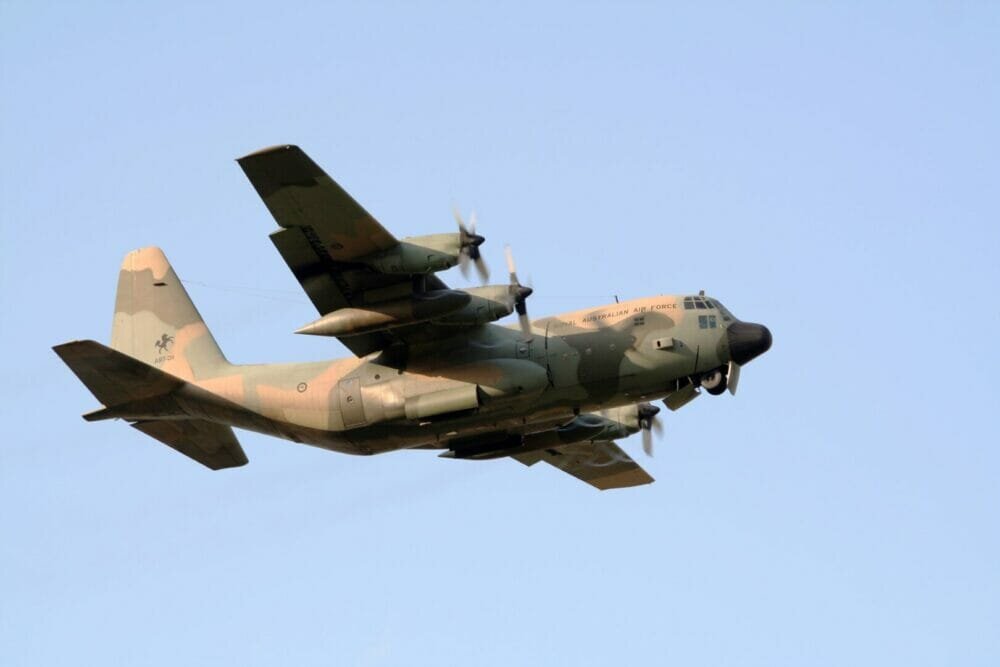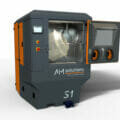~ How miniature connector solutions have a big impact in mission-critical applications ~
Applications that offer limited space for hardware, for example in a military aircraft, pose unique challenges when it comes to finding the right connector solution. Applications like military and aerospace require smaller, more compact electrical connectors that are still capable of withstanding harsh environments. Here, Sean Fitall, European product manager at interconnect solutions supplier PEI-Genesis, explores how micro-miniature circular connectors can provide significant savings in both space and weight requirements while ensuring a reliable connection.
Future Market Insights predicts that the micro-miniature coaxial adaptor market will increase from $3.7 million USD in 2018 to $5.8 million by 2028. Likely drivers of this growth are the ongoing conflicts in Ukraine and the expectation that global air traffic will increase at a rate of 4.4 per cent per year over the next 20 years.
This is because microminiature connectors offer significant savings in both weight and space, owing to their small size and the level of performance equal to their larger, circular counterparts. In industries where extra ounces of equipment cuts payload capacity and uses more fuel, saving weight is important. In fact, Virgin Atlantic has estimated that losing a pound in weight from every plane in its fleet could save 53,000 litres of fuel a year, amounting to tens of thousands of US dollars in savings.
With this in mind, let’s discuss how aircraft manufacturers can tackle the challenge of space and weight restrictions at no sacrifice to connector performance.
Meeting the needs of the application
For manufacturers of military and aerospace devices, all electrical components must be able to operate in demanding conditions. For example, tactical equipment in a military aircraft is regularly exposed to vibrational forces, which can interrupt connections, loosen fastenings or, in a worse case scenario, damage the internal contacts. It is crucial, therefore, that micro-miniature connectors comply to MIL-DTL-38999 specifications for vibration and shielding.
The Amphenol 2M series of micro-miniature connectors are fully compliant to MIL-DTL specifications, meaning they have undergone rigorous testing to ensure they remain sealed in harsh environments and rated for temperatures of -65 to 175 degrees Celsius. Furthermore, on average this series offers 71 per cent weight savings compared to the MIL-DTL-38999 standard and are 52 per cent smaller.
Saving space and weight doesn’t mean you sacrifice performance, however. Most micro-miniature connectors are manufactured with a higher contact density than most other connectors in the same class, ensuring a strong and reliable signal transmission in small spaces. This is ideal for mission-critical applications like airframes, avionics boxes, tactical equipment and headsets, where a whole operation relies on the efficient transmission of information.
Design flexibility is also important when choosing a military or aerospace connector, particularly when an accidental disconnect could be detrimental to operations. Some applications, like communications systems in a military ground vehicle, will require bayonet coupling for faster mating and disconnect.
Therefore, choosing a connector that can be assembled with many coupling options, such as bayonet, threaded or breakaway, will offer this design flexibility. With this, customers are guaranteed a customised interconnect solution suitable for satellites, industrial equipment, military support technology, like hand-held radios, GPS devices and missile systems.
PEI-Genesis’ selection of connectors for the military and aerospace markets includes Amphenol’s MIL-DTL-38999 2M connectors and ITT Cannon MKJ series. This variety will ensure you get the best connectors to simplify your assembly process and improve the quality and reliability of your military and aerospace designs.
Learn more about PEI-Genesis in mission-critical applications www.peigenesis.com/military/military-connectors.








